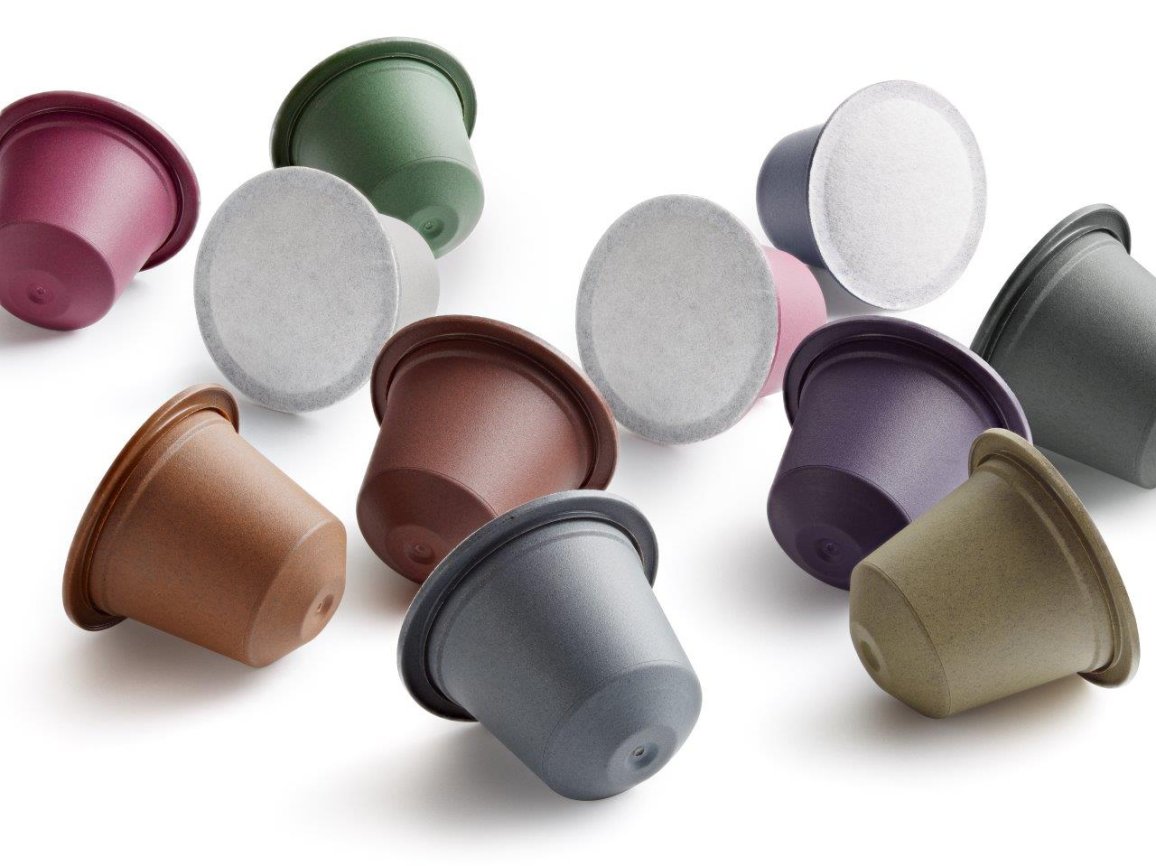Indulgence on demand – with a clear conscience?
Being practical, quick and flexible, coffee capsules are the perfect fit for our modern lifestyle. These mini containers also have an environmental note as their exact dosing means they only use as much coffee, water and electricity as is actually needed for a cup of the popular pick-me-up. What’s more, there are now capsules that turn into new soil in your home compost after use.

The small coffee containers have had the reputation of being major generators of waste ever since they were launched in the market. But it’s worth taking a closer look at them as coffee capsules do indeed have some advantages. Their precise portioning means they are economical. They can now also consist of sustainable raw materials, making them suitable for environmental disposal in your own compost – as certified by TÜV Austria.
Compostability reduces waste
These days, coffee capsules can be made of special organic materials, eliminating the use of crude oil or aluminium. Their good barrier properties protect the more than 800 different coffee flavours – and the capsules decompose together with regular food waste in your home compost after use. As do those produced by ALPLA, one of the first companies to roll out coffee capsules which are certified home-compostable. These special containers are turned into new soil by microorganisms in the garden compost and bear TÜV Austria’s ‘OK compost HOME’ certification label. [1]
In addition, the residual coffee grounds in the capsules boost the compost quality. Anyone who already has their own compost heap at home can therefore combine modern indulgence with sustainability thanks to these special biodegradable coffee capsules. The capsules can also encourage people to create their first compost heap, which can then be used to reintroduce other food leftovers and plant remains into the natural cycle too, leading to the development of valuable humus within a year.
Type of brewing makes a difference
Coffee is highly resource- and emission-intensive due to its elaborate production and brewing, and less so due to its long transport journeys. The Oeko-Institut has calculated that, at 59 grams of carbon equivalents, coffee growing alone accounts for more than half (approximately 56 per cent) of the entire carbon footprint of a cup of coffee, followed by its brewing at around 30 per cent. Around just 12 per cent can be attributed to logistics, roasting and packaging. [2]
Therefore, the more precisely consumers measure the coffee, water and electricity they use for a cup of hot coffee, the better it is for the environment. For example, it is often not worth occasional coffee drinkers or single people brewing a pot of traditional filter coffee for just one or two cups. In this instance, it is worth considering coffee capsules as an alternative due to their precise dosing per individual cup. These also only use the amounts of water and electricity which are actually needed per cup. No surplus water needs to be boiled and there is also no need to keep the brewed coffee hot. This conclusion is also reached in a study conducted by the Université du Québec, with the Canadian researchers determining that traditional filter coffee causes greater emissions than encapsulated filter coffee. [3] If the coffee containers additionally consist of compostable organic material, as is the case with ALPLA’s capsules, waste is no longer an issue either – resulting in indulgence on demand with an absolutely clear conscience.
[1] https://blog.alpla.com/en/blog/products-innovation/sustainable-coffee-capsules-its-certificate-counts/07-23
[3] https://theconversation.com/heres-how-your-cup-of-coffee-contributes-to-climate-change-196648.
Do you like our texts? Perhaps even so much that you want to use them in your own media? Then please get in touch with us beforehand!
